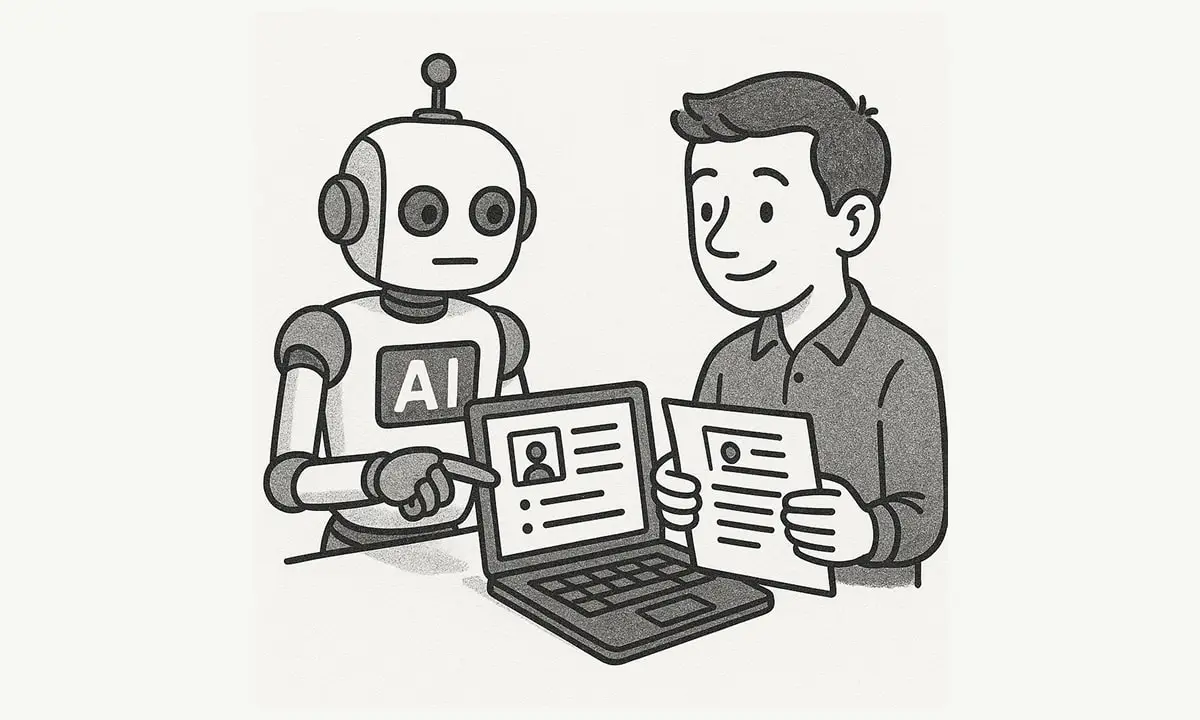The financial markets have always been at the forefront of technological innovation. From the days of manual trading floors to the current era of algorithm-driven decision making, the evolution of trading technologies has been nothing short of revolutionary. Today, modern technologies—especially Artificial Intelligence (AI)—are reshaping the landscape of trading, offering unprecedented speed, precision, and insight. At the heart of this transformation lies Quantum AI, a fusion of quantum computing and AI that promises to unlock new levels of efficiency and innovation in trading practices.
Quantum AI leverages the principles of quantum mechanics, such as superposition and entanglement, to process information in ways that far exceed the capabilities of classical computers. For traders and financial institutions, this means the potential to analyze vast datasets, optimize portfolios in real-time, and execute trades with lightning speed. As we delve into this article, we will explore the evolution of trading technologies, the transformative benefits of Quantum AI, its real-world applications, the challenges it faces, and the exciting trends shaping its future.
Understanding Quantum AI
Quantum AI represents the next leap in technological evolution by combining the computational power of quantum computing with the analytical prowess of artificial intelligence. Unlike classical computers that use bits (0s and 1s) to perform calculations, quantum computers use quantum bits, or qubits, which can exist in multiple states simultaneously. This unique property allows quantum systems to perform complex calculations in parallel, making them especially well-suited for tasks that involve large-scale data processing and pattern recognition.
By integrating quantum algorithms with AI models, Quantum AI can solve problems that are currently intractable using traditional methods. For instance, quantum-enhanced machine learning models can sift through petabytes of market data, detect subtle correlations, and forecast market trends with a level of precision that was previously unimaginable. Researchers are actively exploring various quantum algorithms—such as quantum annealing and variational quantum eigensolvers—to further boost the capabilities of AI in financial applications.
As Quantum AI matures, it holds the potential to not only enhance existing trading strategies but also to create entirely new paradigms for market analysis and decision-making. This groundbreaking approach could ultimately transform how financial institutions assess risk, optimize portfolios, and execute trades.

The Evolution of Trading Technologies
Trading has evolved significantly over the past several decades. Initially, trading was a manual process, dependent on physical trading floors, human intuition, and face-to-face interactions. The advent of electronic trading platforms in the late 20th century marked a turning point, enabling faster and more efficient transactions. As markets globalized, the need for speed and precision led to the development of algorithmic trading systems that could execute trades in fractions of a second.
With the rise of high-frequency trading (HFT), financial markets began to see a surge in automated strategies designed to exploit tiny price discrepancies across multiple markets. These systems relied on sophisticated statistical models and real-time data analysis to secure competitive advantages. More recently, AI and machine learning have been incorporated into trading algorithms, enabling systems to learn from historical data, identify emerging patterns, and adjust strategies dynamically.
The introduction of Quantum AI represents the latest stage in this evolutionary journey. By harnessing quantum computing’s ability to process multiple variables simultaneously, Quantum AI systems can analyze complex market dynamics more effectively than ever before. This shift not only promises to enhance trading speed and accuracy but also opens up new avenues for innovation in financial technology.
Benefits of Quantum AI in Trading
The adoption of Quantum AI in trading offers a host of advantages that can provide financial institutions with a significant competitive edge. Some of the primary benefits include:
- Enhanced Data Processing: Quantum AI systems can analyze enormous datasets in parallel, reducing the time required to process and interpret market data. This capability is crucial in today’s fast-paced trading environments where timely insights can make a critical difference.
- Improved Predictive Accuracy: By utilizing quantum algorithms, AI models can capture complex, non-linear relationships within financial data. This leads to more accurate forecasts of market movements and better-informed trading decisions.
- Optimized Risk Management: Quantum AI can simultaneously evaluate countless market scenarios, enabling traders to identify potential risks and devise effective mitigation strategies. This is especially important during periods of high market volatility.
- Accelerated Trade Execution: The ability to process data at quantum speeds means that trades can be executed in mere microseconds. This rapid execution is essential for taking advantage of fleeting market opportunities.
Consider a scenario where a hedge fund is managing a diverse portfolio. With traditional systems, optimizing this portfolio by balancing risk and reward can take hours or even days. However, a Quantum AI system can perform complex simulations and optimizations in real-time, allowing the fund to adjust its strategy instantly in response to market fluctuations.
Another significant benefit is the enhanced capability for market sentiment analysis. By combining natural language processing (NLP) with quantum computational power, traders can analyze news feeds, social media, and other sentiment indicators in real time. This provides an edge in understanding how public sentiment might influence market movements, leading to more proactive trading strategies.
Innovative Use Cases and Real-World Examples
The transformative potential of Quantum AI is already being explored through several innovative use cases across the financial sector:
- Algorithmic Trading Enhancements: Quantitative trading firms are integrating Quantum AI into their algorithmic trading systems to enhance speed and predictive accuracy. This integration allows for the development of more robust algorithms that can handle a higher volume of complex market data.
- Portfolio Optimization: Investment managers are using Quantum AI to simulate numerous market scenarios, thereby identifying the optimal allocation of assets. This not only improves returns but also helps in minimizing risks during market downturns.
- Market Sentiment Analysis: By applying quantum-enhanced NLP techniques, firms can quickly process unstructured data from news outlets, financial reports, and social media. The insights derived from this analysis enable traders to anticipate market movements based on shifts in sentiment.
- Real-Time Decision Support: Some leading financial institutions are piloting Quantum AI systems that provide real-time analytics and decision support during trading sessions. These systems offer immediate feedback on market conditions, allowing traders to adjust their strategies on the fly.
For example, several hedge funds have reported promising results by incorporating Quantum AI into their trading frameworks. These funds utilize quantum algorithms to optimize trade execution and risk management, achieving superior performance even in volatile market conditions. Startups in the fintech space are also emerging with solutions that combine quantum computing with AI, targeting niche areas such as derivative pricing and liquidity forecasting.

Challenges and Considerations in Adopting Quantum AI
Despite its tremendous potential, the integration of Quantum AI into trading systems is not without its challenges. Several factors must be considered before fully embracing this technology:
- Technological Maturity: Quantum computing is still in its early stages. Although significant progress has been made, many quantum systems are experimental and not yet widely available for commercial applications. Firms need to weigh the benefits against the current limitations in hardware and software.
- High Initial Costs: The development and deployment of quantum computing infrastructure require substantial investment. The cost of quantum hardware, specialized software, and training for personnel can be a significant barrier for many organizations.
- Integration Complexity: Incorporating Quantum AI into existing trading systems is a complex process. Financial institutions must undertake extensive system overhauls, ensure compatibility with legacy systems, and provide comprehensive training to their staff.
- Regulatory and Security Concerns: As with any disruptive technology, the rapid adoption of Quantum AI raises important regulatory questions. There are concerns about data security, especially as quantum computing also challenges current encryption methods. Developing quantum-resistant encryption and ensuring compliance with financial regulations are critical considerations.
Another challenge lies in the inherent unpredictability of quantum systems. Quantum computers are highly sensitive to environmental factors, and error rates remain an issue that researchers continue to address. As a result, firms must balance the promise of rapid, high-powered computation against the potential risks of system instability and data inaccuracies.
Despite these challenges, many experts believe that the long-term benefits of Quantum AI will far outweigh the initial hurdles. As the technology matures and becomes more accessible, early adopters will likely reap significant rewards in terms of efficiency, predictive power, and market competitiveness.
Future Trends and Predictions in Quantum AI Trading
The future of Quantum AI in trading is both exciting and full of promise. As research and development in quantum computing continue to advance, we can expect several key trends to emerge:
- Broader Adoption Across Financial Institutions: As quantum hardware becomes more robust and cost-effective, a wider range of banks, hedge funds, and asset management firms will begin to integrate Quantum AI into their trading systems.
- Collaborations Between Tech Giants and Finance: The complexity of Quantum AI will likely spur increased partnerships between technology companies and financial institutions. These collaborations can accelerate innovation by combining cutting-edge research with real-world financial expertise.
- Hybrid Systems: In the near term, we are likely to see hybrid systems that integrate classical computing with quantum enhancements. These systems will leverage the best of both worlds, gradually paving the way for fully quantum-powered trading solutions.
- Enhanced Regulatory Frameworks: As Quantum AI becomes more prevalent, regulatory bodies will work to establish frameworks that ensure market fairness, data security, and investor protection. Clear guidelines will be essential for balancing innovation with risk management.
Moreover, advancements in quantum algorithms and error-correction techniques will further enhance the reliability and performance of Quantum AI systems. We can expect to see more robust models that not only predict market trends with high accuracy but also simulate complex economic scenarios. This capability will empower financial institutions to prepare for a wider range of market conditions and optimize their strategies accordingly.
As the boundaries between classical and quantum computing continue to blur, the financial industry is poised to enter a new era of technological integration. This evolution promises to reshape trading practices, enabling institutions to achieve levels of performance and adaptability that were once the stuff of science fiction.
Conclusion
The integration of modern technologies in trading, particularly through the revolutionary capabilities of Quantum AI, marks a pivotal moment in the evolution of financial markets. By combining the unmatched computational power of quantum computing with the adaptive intelligence of AI, traders and institutions can process vast amounts of data, optimize complex portfolios, and execute trades with remarkable speed and accuracy.
While challenges such as technological maturity, high costs, and regulatory concerns remain, the benefits of enhanced data processing, improved predictive accuracy, and optimized risk management make Quantum AI a promising frontier in financial technology. Early adopters of this technology stand to gain a significant competitive advantage in an increasingly dynamic and complex market landscape.
As we look to the future, the trend towards broader adoption of Quantum AI is inevitable. Financial institutions that invest in this technology today will be well positioned to lead the industry into a new era of efficiency and innovation. The evolution of trading technologies is not just about keeping pace with change—it’s about shaping the future of finance.
Call to Action: We invite you to explore the transformative potential of Quantum AI further. Whether you are an experienced trader, a financial institution executive, or a technology enthusiast, now is the time to learn how these innovative solutions can enhance your trading strategies and drive success. Discover in-depth research and practical applications by visiting our recommended platforms:
Embrace the future of trading by leveraging the power of Quantum AI. As technology continues to evolve, so too will the opportunities for innovation and growth in financial markets. Begin your journey today, and secure a competitive edge in the dynamic world of modern trading.










